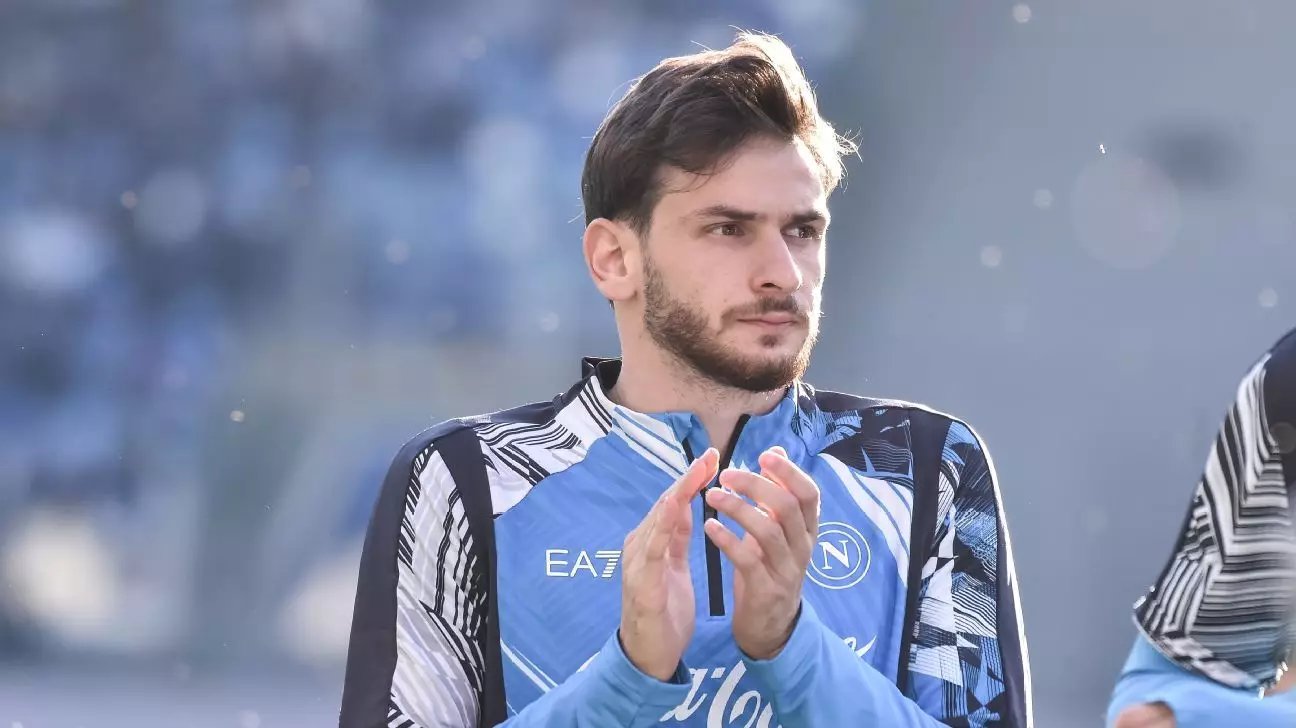The transfer window often brings a whirlwind of speculation, especially as clubs look to strengthen their squads mid-season. Recently, Liverpool’s head coach, Arne Slot, found himself at the center of speculation linking Napoli’s talented winger, Khvicha Kvaratskhelia, with a potential move to Anfield. With a contract running until 2027, Kvaratskhelia has garnered attention, yet Slot’s response to this news highlights the volatility and drama surrounding football transfers.
Kvaratskhelia has reportedly become a hot topic in January’s transfer discussions after stalled contract negotiations with Napoli. The Italian club values the young Georgian at around €80 million ($82 million), and Paris Saint-Germain is seen as the leading contender for his signature. Liverpool’s name entering the fray indicates their continuous effort to bolster their attacking options, yet Slot chose to remain non-committal during a press conference ahead of a key FA Cup match.
Slot’s remarks reflect a common sentiment among coaches during the transfer window—most rumors usually lack substantial backing and often dissipate as the deadline approaches. He emphasizes that, in the majority of cases, the names surfacing in fleeting news reports rarely materialize into genuine transfers, noting, “What can I comment about it? The rumors? Keep going for it but there will be no comments from my side.” This approach underscores a tactical awareness that transparent discussions about player movements can expose vulnerabilities within a club.
In parallel with the transfer speculations, Slot was also keen to defend right-back Trent Alexander-Arnold amid criticism for his recent performance against Manchester United. Alexander-Arnold’s situation is particularly compounded by the fact that his contract is set to conclude at the end of the season, and Liverpool has already rebuffed advances from Real Madrid. Slot’s comments serve to dispel the notion that criticism aimed at Alexander-Arnold should overshadow the collective responsibility of the team’s defensive unit.
The coach acknowledged the potential for opposing teams to exploit vulnerabilities on the flanks, but he was quick to contextualize this. “It could also mean we attack a lot on the right side and they counter-attack,” he stated, illustrating the complex dynamics of modern football. Slot suggests that while teams may target the right-hand side, it is not solely Alexander-Arnold who bears the blame for defensive shortcomings. Rather, he emphasizes a broader issue regarding midfield and defensive cohesion, reinforcing that each player’s performance is interconnected.
Slot’s reassurances about Alexander-Arnold point to a deeper understanding of team dynamics and defensive patterns. Every match reveals trends in how goals are conceded; thus, focusing on one player can create a distorted perspective of a multifaceted problem. “I do see patterns in the goals we concede, but it is not about Trent if that is what you mean,” Slot clarified, acknowledging that the responsibility lies with the entire team.
This holistic approach to analyzing performance reflects an understanding that even star players can have off days without it reflecting their overall ability. By highlighting how well Alexander-Arnold performed shortly after being criticized, Slot attempts to shift the narrative, steering fan sentiment back towards support and understanding rather than blame.
The situation surrounding Kvaratskhelia’s possible transfer and the current assessments of Trent Alexander-Arnold encapsulate the dual nature of football—volatile speculation intertwined with the nuances of player performance. As Liverpool navigates the challenges of the transfer window, Slot appears aware of the need to maintain focus and unity within the squad. His measured responses serve as a critique of the sensationalism often surrounding player transfers and public scrutiny. Ultimately, as the January window looms, it becomes increasingly evident that clear communication and strategic thinking are essential for clubs aiming to foster both talent and resilience on and off the pitch.

